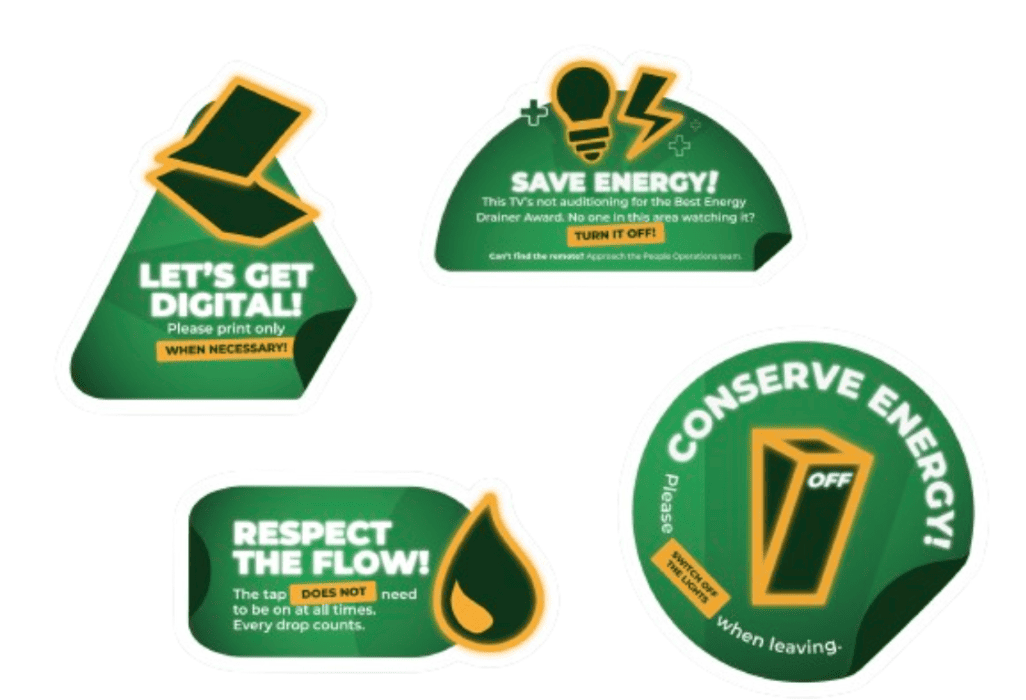
In recent years, sustainability has emerged as a critical focus in response to escalating environmental challenges. Observers note that rising energy demands and increasing water pollution are significant concerns that highlight the pressing issues facing society. These environmental problems, exacerbated by the impacts of climate change, underscore the necessity for a reevaluation of everyday habits and practices to address these urgent issues effectively.
Understanding Our Impact: Energy Consumption in Office Practices
Office workers often inadvertently contribute to environmental issues through their workplace practices. Notably, even companies not directly involved in manufacturing can have a significant impact on energy consumption due to their office operations. A 2017 report published in Renewable and Sustainable Energy Reviews highlights that the energy usage associated with office employees can constitute a considerable portion of overall energy consumption.
Effective Energy-Saving Strategies for the Office
Acknowledging these issues, employees can significantly contribute to fostering eco-conscious practices in the office by adopting several key energy-saving strategies, including:
Avoid overcharging devices
Unplugging chargers once devices are fully charged is an effective measure to prevent unnecessary energy consumption. Even after a device reaches full charge, the charger can draw up to 0.1 watts of power continuously, which can accumulate to 1 to 2 kilowatt-hours (kWh) per year per charger. This “vampire power” or “phantom load” not only wastes energy but also increases electricity bills. By disconnecting chargers, employees can help save approximately 10% on their electricity use, reduce overall energy consumption, and support the organization’s sustainability objectives. Additionally, this practice can extend the lifespan of both chargers and devices, making it a straightforward yet impactful way to enhance energy efficiency in the office.
Adjusting Device Settings
Lowering screen brightness and utilizing power-saving modes on personal devices can significantly reduce energy consumption. Bright screens require more power, so dimming them decreases the energy used. Power-saving modes further optimize device performance by minimizing unnecessary background activity and reducing energy use during idle times. Implementing these settings helps conserve energy, extend battery life, and support overall office sustainability efforts. To reinforce these practices, Forest Interactive has produced eco-stickers with messages such as “Save the Energy,” “Conserve Energy,” “Respect the Flow,” and “Let’s Get Digital.” These stickers stand as a visual reminder to encourage employees to adopt energy-saving habits, contributing to the organization’s sustainability goals.
Embracing Digital Meetings and Minimizing High-Energy Equipment Use
Researchers from the University of Salamanca have stated that embracing digital meetings and reducing reliance on high-energy equipment such as printers, PCs, and scanners can significantly contribute to energy conservation. These devices collectively account for over 25% of office energy consumption. By opting for virtual meetings and cutting back on the use of energy-intensive office equipment, employees can help lower overall energy use and support more sustainable office practices. This not only reduces the energy footprint of the workplace but also aligns with broader sustainability goals.
The Collective Power of Individual Actions in Promoting Sustainability
By incorporating these simple yet effective practices into their daily routines, employees can significantly impact the office’s overall energy efficiency. Collaborating on eco-friendly practices at an individual level can lead to substantial improvements in energy conservation, demonstrating that even small changes can make a significant difference. Each worker’s efforts to adopt these practices contribute not only to the office’s sustainability goals but also to a broader environmental impact. When employees collectively commit to reducing energy use and embracing sustainable habits, they help drive meaningful progress towards an eco-friendlier workplace.




